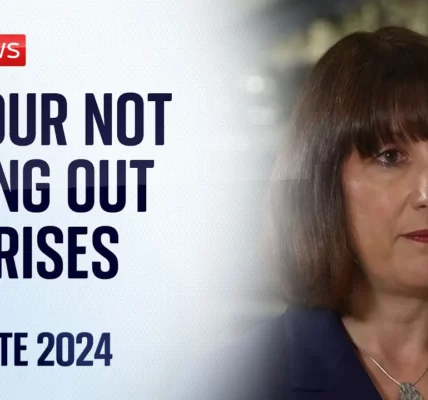Liberal Democrats Announce Comprehensive Healthcare Plans

In a significant announcement regarding their healthcare strategy, the Liberal Democrats have proposed a series of initiatives aimed at bolstering the NHS and improving care for citizens. This article delves into the details of their plans, the financial implications, and the expected outcomes for healthcare in the UK.
Introduction to the Liberal Democrats’ Healthcare Agenda
The Liberal Democrats have positioned healthcare as a central focus of their election campaign. With the NHS facing unprecedented challenges, their proposals aim to address critical shortages in hospital capacity and care workers. This initiative comes in the context of rising healthcare demands and a growing population, necessitating a robust response from government entities. The recent announcement includes plans for 1,000 new hospital beds, a significant investment in general practitioners, and financial commitments to improve the overall healthcare landscape.
Proposed Initiatives and Financial Commitments
The Liberal Democrats have outlined a comprehensive strategy that promises to enhance the UK’s healthcare system. Here are the key components of their proposal:
- 1,000 New Hospital Beds: Aiming to alleviate pressure on the NHS by increasing capacity.
- Funding for General Practitioners: A commitment to adding 8,000 new GPs to better serve the community.
- Investment in Care Workers: Plans to improve wages and working conditions for those in the care sector.
- Capital for Hospital Repairs: An unspecified amount dedicated to maintaining and upgrading existing facilities.
Cost Breakdown
The financial implications of these plans are significant, with an upfront cost of £280 million and ongoing annual expenses of £400 million. The funding sources for these initiatives include:
- Reversal of tax cuts for large banks, projected to raise £4.3 billion.
- Increased digital service taxes on major tech companies like Google and Amazon.
Addressing Criticisms and Concerns
Despite the ambitious plans, there are concerns regarding the feasibility and effectiveness of the proposed measures. Critics have pointed to the need for a more extensive number of hospital beds to truly address the crisis, with estimates indicating that between 23,000 to 39,000 additional beds may be required by 2031.
Response to Criticism
In response, Liberal Democrat representatives have emphasized the importance of a holistic approach to healthcare. They argue that improving care availability at home can significantly reduce the burden on hospitals. Key strategies include:
- Implementing a national minimum wage for care workers, increasing their pay to attract more individuals to the profession.
- Encouraging family members to provide care, thus relieving pressure on formal care services.
The Importance of Fair Taxation
One of the cornerstones of the Liberal Democrats’ financial strategy is the emphasis on fair taxation. The party has pledged not to increase personal income taxes but instead to focus on taxing corporations and other high-earning entities. This approach is aimed at ensuring that the burden of funding healthcare does not fall on individuals already grappling with rising living costs.
Targeted Tax Reforms
Proposals include:
- Windfall taxes on oil and gas companies benefiting from high prices.
- Increased taxes on large financial institutions that have seen significant profits.
Conclusion
The Liberal Democrats’ healthcare proposals reflect a proactive approach to addressing the challenges facing the NHS and the care sector in the UK. By focusing on increasing capacity, improving care worker conditions, and ensuring fair taxation, the party aims to create a sustainable healthcare system that prioritizes the needs of citizens. As the election approaches, these plans will be crucial in shaping the public dialogue around healthcare. For more insights on the Liberal Democrats’ policies, stay tuned for their upcoming manifesto release.
For additional information on related topics, consider reading our articles on the impact of healthcare funding on NHS services and the role of care workers in the healthcare system.
“`




